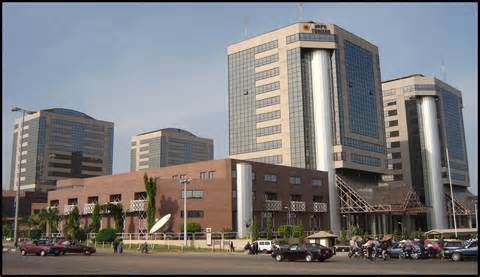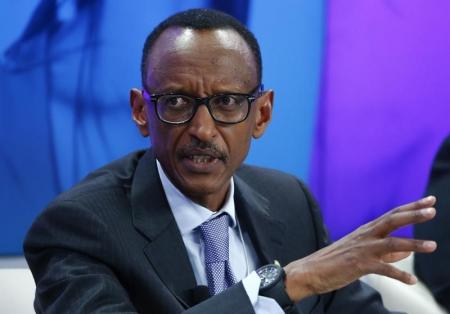The four grey towers that form the headquarters of Nigeria’s state oil company in the dusty capital, Abuja, feature tinted windows as opaque as the organisation inside, accused of failing to account for tens of billions of dollars.
President Muhammadu Buhari, the 72-year-old sandal-wearing ascetic who swept to power this year on an anti-corruption ticket, has made clear he wants to overhaul Nigeria’s oil industry, starting with the behemoth at its core.
Last month Buhari, who was petroleum minister when the Nigerian National Petroleum Corporation (NNPC) was set up in 1977, dissolved the board, and more sackings are expected. Meanwhile, the Department of State Services (DSS) intelligence agency has been carrying out investigations.
“The DSS has been harassing some of us,” said Ian Udoh, NNPC’s group executive director for refining and petrochemicals, who has been hauled in for questioning 11 times since late May.
The NNPC represents interests in oil and gas exploration, manages the energy sector and is the regulator, making it arguably the most important institution in Africa’s biggest economy and top crude producer.
“There is a siege mentality here at the moment,” said Udoh, an NNPC veteran of 36 years. He said Buhari’s initiative had given fresh legs to media coverage of the accounting holes worth over $20 billion identified by two separate investigations, and that the public pressure was dominating management meetings.
As if to underline the point, soldiers guard the building from raised platforms, and visitors are required to go through four separate security checks.
In the shadow of one of NNPC towers, a fleet of sleek 4×4 vehicles can be seen in the car park. But inside, the carpets are threadbare and window frames are rusting, symbolic of the decay that has befallen NNPC over the years.
In reform proposals seen by Reuters, Buhari’s advisers have recommended a root-and-branch overhaul of Africa’s biggest oil industry
The oil sector provides the government with roughly 70 percent of its revenue, and the slump in crude oil prices since last year has hit the economy hard.
Under the constitution, the NNPC is supposed to hand over its oil revenue to the federal government, which then pays back what the firm needs based on a budget approved by parliament.
But in a legal contradiction that has never been resolved, the act establishing the state oil company allows it to cover costs before remitting funds to the government, in effect enabling it to do what it wants with the cash.
A 2013 investigation by former central bank governor Lamido Sanusi found the NNPC had failed to pay $20 billion in revenues to government accounts between January 2012 and July 2013.
The company argued that the money was not lost at all. A subsequent audit by PwC found that some funds were unaccounted for, but bemoaned a lack of cooperation and issued an audit with extensive caveats.
Then, last month, the National Economic Council said the NNPC had earned 8.1 trillion naira ($41 billion) between 2012 and the end of May 2015, but paid only 4.3 trillion naira ($21.6 billion) to the federal government.
The Council is chaired by the vice president and includes all state governors and the central bank head. The NNPC could not be reached to comment directly on that report.
Buhari wants to plug the leaks, but this may prove difficult.
“The fact that the NNPC has effectively become impossible to audit suits a lot of people,” said Antony Goldman of Nigeria-focused PM Consulting.
He said it was conceivable that not even insiders knew the real value of the various deals agreed on behalf of the company.
OPAQUE CONTRACTS
The greatest indictment of the NNPC may be that Nigeria’s four refineries have never reached full production, due to poor maintenance, leaving Africa’s biggest crude producer to rely on expensive imported fuel for 80 percent of its energy needs.
Watchdogs say the government may be losing billions of dollars through opaque contracts in which crude oil is swapped for refined imports such as gasoline and diesel.
Many of the problems that gripped the NNPC from the 1990s onwards, as the refineries began to decline and oil imports rose, stem from a failed restructuring in the late 1980s, which led to the creation of 12 strategic business units.
They were supposed to be privatised but remained part of the company, acting as separate departments with little or no contact, beyond the reach of effective oversight.
The fact that the NNPC has gone through six general managing directors since 2011 is a clear sign of “political interference in the day-to-day running of the operation”, said Zainab Ahmed, executive director of the Nigerian Extractive Industries Transparency Initiative (NEITI), a corruption watchdog.
The petroleum minister has traditionally had an office at the NNPC and sits on its board.
“The NNPC’s relationship with government should primarily be one of financial accountability and reporting,” said Rolake Akinkugbe, head of energy and natural resources at FBN Capital.
“It should be restructured in a way that permanently severs its regulatory functions from its operational functions.”
Buhari, who may not name his cabinet until September, is widely expected to keep the petroleum portfolio for himself, marking a return to a role he occupied more than three decades ago when he oversaw the construction of national refineries.
Udoh, rocking back in his chair under the gaze of an official photograph of his new president, said the modern NNPC was very different to the “dynamic” organisation he joined in 1979, when its Lagos office held a fraction of the 2,000 people who work in today’s Abuja megalith.
“People had bigger dreams back then,” he said, “and could develop their vision.”
Reuters














